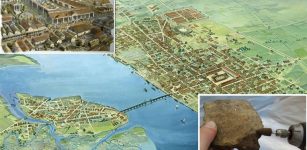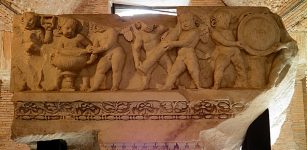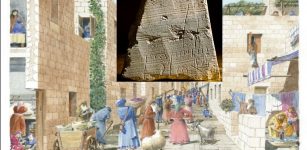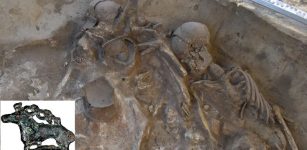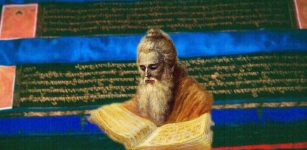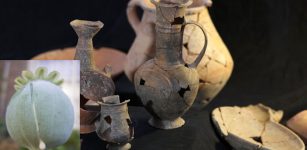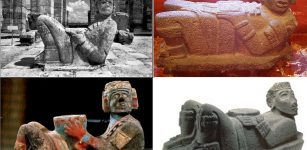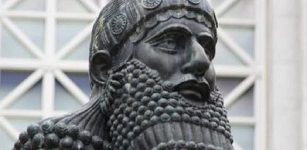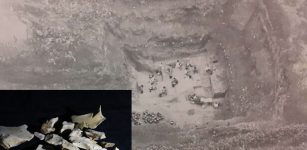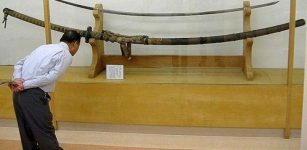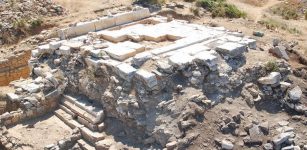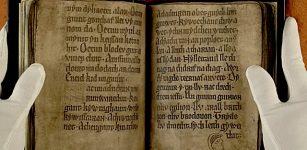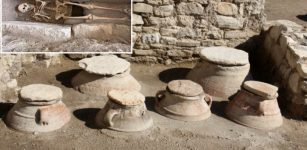2500-Year-Old Objects Made From Goat Bones Discovered In Turkey’s City Of Aigai
Conny Waters - AncientPages.com - During the ongoing archaeological excavations in the ancient city of Aigai, archaeologists unearthed a large number of goat bones and objects made from them.
DNA analysis is believed to shed new light on the relationship between goat species in ancient times and current goat breeds.
The goat bones were found in a cistern pit that was used as a garbage dump in the excavations in Aigai, one of the 12 cities founded by the Aeolian people in the western province of Manisa’s Yunusemre district.
The bones, some of which have been determined to be processed and turned into ornaments with forks, knives, spoons, hairpins, and various household appliances, have been examined by expert academics from Middle East Technical University (ODTÜ) and Istanbul University, writes Hurriyet Daily News.
Yusuf Sezgin, the head of the excavation, noted that the word “Aigai” means goat in ancient Greek and that the city was a city-state famous for its goats in the past.
Reminding that they had found a lot of animal bones previously in the excavations, which they have been carrying out for the past 16 years, Sezgin said it was the first time that goat bones were found, stressing that they realized that the meat, milk, and skin of the goat, which is the source of wealth of Aigai, were used as well as the bones.
“We are working on the DNA of these goat bones in a [Scientific and Technological Research Council of Turkey] TÜBITAK project,” Sezgin said.
“Here, we examine the DNA of the bones uncovered and compare it with today’s goat breeds. We are trying to learn the relationship between goat species in ancient times and current goat breeds,” he added.
According to historical sources, the city was a possession of the Lydian Empire and later the Achaemenid Empire when it conquered the former.
Mosaic portrayed the Greek god Poseidon from the ancient Greek city of Aigai. Image credit: Anadolu Agency
Since 2004 the site is being continuously excavated by Ersin Doger of Ege University in Izmir. Archaeologists discovered in the area of the ancient Aigai many valuable finds. that included water pipes, shops, the odeon, a road large fragments of Aigai's market hall.
In 2016, archaeologists discovered a mosaic depicting the god Poseidon. The mosaic was found in the frigidarium part ( a large cold pool at the Roman baths). The bottom part of the mosaic has partly ruined inscription in Greek: "Greetings to all of you bathing." Archaeologists believe that it dates back to the 3rd or 4th century BC. In 2018, archaeologists unearthed a Macellum, which is an ancient meat and fish market.
Written by Conny Waters - AncientPages.com Staff Writer

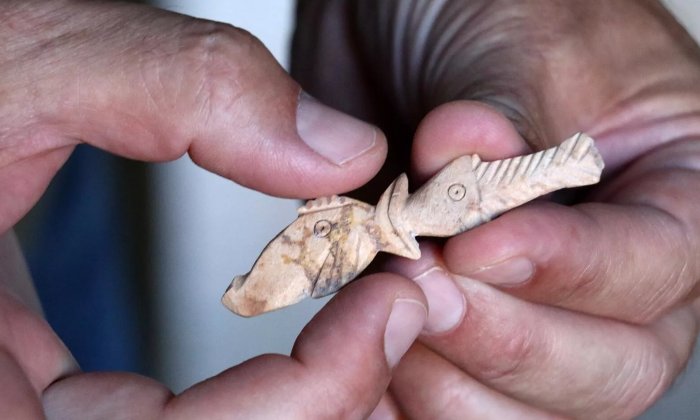
![Mosaic depicting the Greek god Poseidon from the ancient Greek city of Aigai [Credit: AA]](https://www.ancientpages.com/wp-content/uploads/2020/09/aigaimosaic1.jpg)
